Puma strides into 2024
Free Wi-Fi coming to service stations
Fuel trade experts look to technology, convenience, clean restrooms and rural expansion this year.
Puma Energy Namibia boasts 61 retail service stations, two terminals and airport infrastructure. With 130 000m³ of fuel storage, it holds a leading position in petroleum product capacity in the country. Despite a congested market and a moratorium on the establishment of new service stations in the country, general manager Adell Samuelson is upbeat about innovative plans to add value and improve customer experiences for clients around the country.
In a candid interview with local media last Friday, Samuelson outlined the international fuel retail experts’ plan to energise Namibian communities through the course of 2024. Across Africa, Puma operates in 15 countries with a retail network of 687 outlets, of which 97 run on solar energy. Puma Energy is one of 50 international energy companies that signed the Oil and Gas Decarbonisation Charter at COP28 in Dubai last year, and around the world, the multinational intends to install solar panels across 300 retail and terminal sites to reduce operational emissions by 15% by the end of next year, 35% by 2032, and completely by 2050. By 2027, 30% of earnings before interest, taxes, depreciation, and amortisation in Africa should come from transition fuels and clean energy, she said.
Ahead of the curve
One of these transition fuels is the Sustainable Aviation Fuel (SAF) that Puma will soon offer aviation clients at some local airports.
“The introduction of SAF is a critical step towards decarbonising the aviation industry, and Puma Energy Namibia is proud to be at the forefront of this initiative. Puma Energy Namibia’s commitment to providing reliable, safe and high-quality SAF will be essential to ensuring the success of this transition, and we are looking forward to this new journey and the additional value we can offer our customers,” she said.
For motorists whose needs are more down to earth, Puma plans to revive three rural service stations and add two new ones in underserved places where the ministry of mines and energy has waved its moratorium.
Access for all
Following in the footsteps of Puma Energy Zambia, where the first rural mobile filling station was opened in August last year, Puma Energy Namibia plans direct investment aimed at stimulating development and growth in far-flung areas to energise local communities, she said.
Possible constraints, such as the regulatory requirement that unleaded petrol storage tanks be underground, are enjoying attention, she added. "Obviously, these sites should make business sense in terms of return on investment,” she explained.
Innovative convenience
At its existing and extensive network of retail outlets, Puma intends to bring new convenience shops and has agreed to work with Woermann Brock to open five conversions or upgrades this year. This will be in addition to the various current OK convenience shops at Puma service stations. Also, quick-service restaurants are becoming familiar at Puma outlets, including the Hungry Lion at the Oshakati Puma service station on the main road to Okatana. Two more such restaurants are planned for 2024, Samuelson said.
Another exciting addition to Puma’s range of offerings are the lube bays under construction at Kuisebmund in Walvis Bay and at the Soweto service station in Windhoek.
Motorists will be able to get free check-ups on engine oil, coolant and battery water levels there before the end of the first quarter of 2024, she said.
Better connections
More good news is that the programme for the upgrading and improvement of restrooms at Puma Energy Namibia filling stations, which started last year, progresses well.
“Restrooms at eight sites have been completed thus far at a cost of about N$500 000 per upgrade, with the upgrade of restroom facilities at a further 16 dealer-operated service stations scheduled for 2024,” she said.
While customers get refreshed, they will soon also be able to check the internet, with the free Wi-Fi roll-out in the final stages. “The first ten sites will serve as a pilot project to test this free offering to customers. The plan is to extend the service to all sixty Puma Energy Namibia sites by the end of 2024,” the general manager noted.
Testing to see how the service can capitalise on existing internet connections used by dealers continues while other sites that have no internet connection are being capacitated, while a back-office system to limit access to unwanted sites, keep records and get Wi-Fi access to customers is being developed. Vouchers or tokens may be used when the flagship sites start providing the service before the end of April, she said.
Ambitious targets
Ten more projects to enhance technology and information systems at Puma sites this year include digital transformation, facility upgrades, retail site innovations, information systems overhauls and implementing user-focused technological solutions.
For example, automatic tank gauges will allow dealers to know exactly how much fuel is stored and allow Puma to know exactly how much each dealer has bought and may need. “This ambitious investment reflects our unwavering commitment to technological excellence and innovation,” according to Samuelson.
Addressing challenges
Challenges that Puma will face head-on this year include the impact of illegal fuel trading in the north of the country, which has contributed to a 60% drop in sales and hamstrung operations at its depot in the north, Samuelson noted.
Fragile rail infrastructure also hampers Puma’s preference for transporting bulk fuel from landing at Walvis Bay to outlets countrywide, she added.
“We would like to be linked by rail,” also to Namibia’s landlocked neighbours, she said, adding that the depot in Gobabis stands idle awaiting such developments.
Finally, the whole Namibian fuel retail industry awaits the outcome of the merger between Vivo Energy’s Shell network and the Engen combination.
Approval is pending in South Africa from the competition tribunal, although Namibia and Botswana authorities have already given the go-ahead. Although there may be conditions for the merger, Samuelson says that it is likely to go ahead. “It would be like stopping a wave,” she said.
In a candid interview with local media last Friday, Samuelson outlined the international fuel retail experts’ plan to energise Namibian communities through the course of 2024. Across Africa, Puma operates in 15 countries with a retail network of 687 outlets, of which 97 run on solar energy. Puma Energy is one of 50 international energy companies that signed the Oil and Gas Decarbonisation Charter at COP28 in Dubai last year, and around the world, the multinational intends to install solar panels across 300 retail and terminal sites to reduce operational emissions by 15% by the end of next year, 35% by 2032, and completely by 2050. By 2027, 30% of earnings before interest, taxes, depreciation, and amortisation in Africa should come from transition fuels and clean energy, she said.
Ahead of the curve
One of these transition fuels is the Sustainable Aviation Fuel (SAF) that Puma will soon offer aviation clients at some local airports.
“The introduction of SAF is a critical step towards decarbonising the aviation industry, and Puma Energy Namibia is proud to be at the forefront of this initiative. Puma Energy Namibia’s commitment to providing reliable, safe and high-quality SAF will be essential to ensuring the success of this transition, and we are looking forward to this new journey and the additional value we can offer our customers,” she said.
For motorists whose needs are more down to earth, Puma plans to revive three rural service stations and add two new ones in underserved places where the ministry of mines and energy has waved its moratorium.
Access for all
Following in the footsteps of Puma Energy Zambia, where the first rural mobile filling station was opened in August last year, Puma Energy Namibia plans direct investment aimed at stimulating development and growth in far-flung areas to energise local communities, she said.
Possible constraints, such as the regulatory requirement that unleaded petrol storage tanks be underground, are enjoying attention, she added. "Obviously, these sites should make business sense in terms of return on investment,” she explained.
Innovative convenience
At its existing and extensive network of retail outlets, Puma intends to bring new convenience shops and has agreed to work with Woermann Brock to open five conversions or upgrades this year. This will be in addition to the various current OK convenience shops at Puma service stations. Also, quick-service restaurants are becoming familiar at Puma outlets, including the Hungry Lion at the Oshakati Puma service station on the main road to Okatana. Two more such restaurants are planned for 2024, Samuelson said.
Another exciting addition to Puma’s range of offerings are the lube bays under construction at Kuisebmund in Walvis Bay and at the Soweto service station in Windhoek.
Motorists will be able to get free check-ups on engine oil, coolant and battery water levels there before the end of the first quarter of 2024, she said.
Better connections
More good news is that the programme for the upgrading and improvement of restrooms at Puma Energy Namibia filling stations, which started last year, progresses well.
“Restrooms at eight sites have been completed thus far at a cost of about N$500 000 per upgrade, with the upgrade of restroom facilities at a further 16 dealer-operated service stations scheduled for 2024,” she said.
While customers get refreshed, they will soon also be able to check the internet, with the free Wi-Fi roll-out in the final stages. “The first ten sites will serve as a pilot project to test this free offering to customers. The plan is to extend the service to all sixty Puma Energy Namibia sites by the end of 2024,” the general manager noted.
Testing to see how the service can capitalise on existing internet connections used by dealers continues while other sites that have no internet connection are being capacitated, while a back-office system to limit access to unwanted sites, keep records and get Wi-Fi access to customers is being developed. Vouchers or tokens may be used when the flagship sites start providing the service before the end of April, she said.
Ambitious targets
Ten more projects to enhance technology and information systems at Puma sites this year include digital transformation, facility upgrades, retail site innovations, information systems overhauls and implementing user-focused technological solutions.
For example, automatic tank gauges will allow dealers to know exactly how much fuel is stored and allow Puma to know exactly how much each dealer has bought and may need. “This ambitious investment reflects our unwavering commitment to technological excellence and innovation,” according to Samuelson.
Addressing challenges
Challenges that Puma will face head-on this year include the impact of illegal fuel trading in the north of the country, which has contributed to a 60% drop in sales and hamstrung operations at its depot in the north, Samuelson noted.
Fragile rail infrastructure also hampers Puma’s preference for transporting bulk fuel from landing at Walvis Bay to outlets countrywide, she added.
“We would like to be linked by rail,” also to Namibia’s landlocked neighbours, she said, adding that the depot in Gobabis stands idle awaiting such developments.
Finally, the whole Namibian fuel retail industry awaits the outcome of the merger between Vivo Energy’s Shell network and the Engen combination.
Approval is pending in South Africa from the competition tribunal, although Namibia and Botswana authorities have already given the go-ahead. Although there may be conditions for the merger, Samuelson says that it is likely to go ahead. “It would be like stopping a wave,” she said.


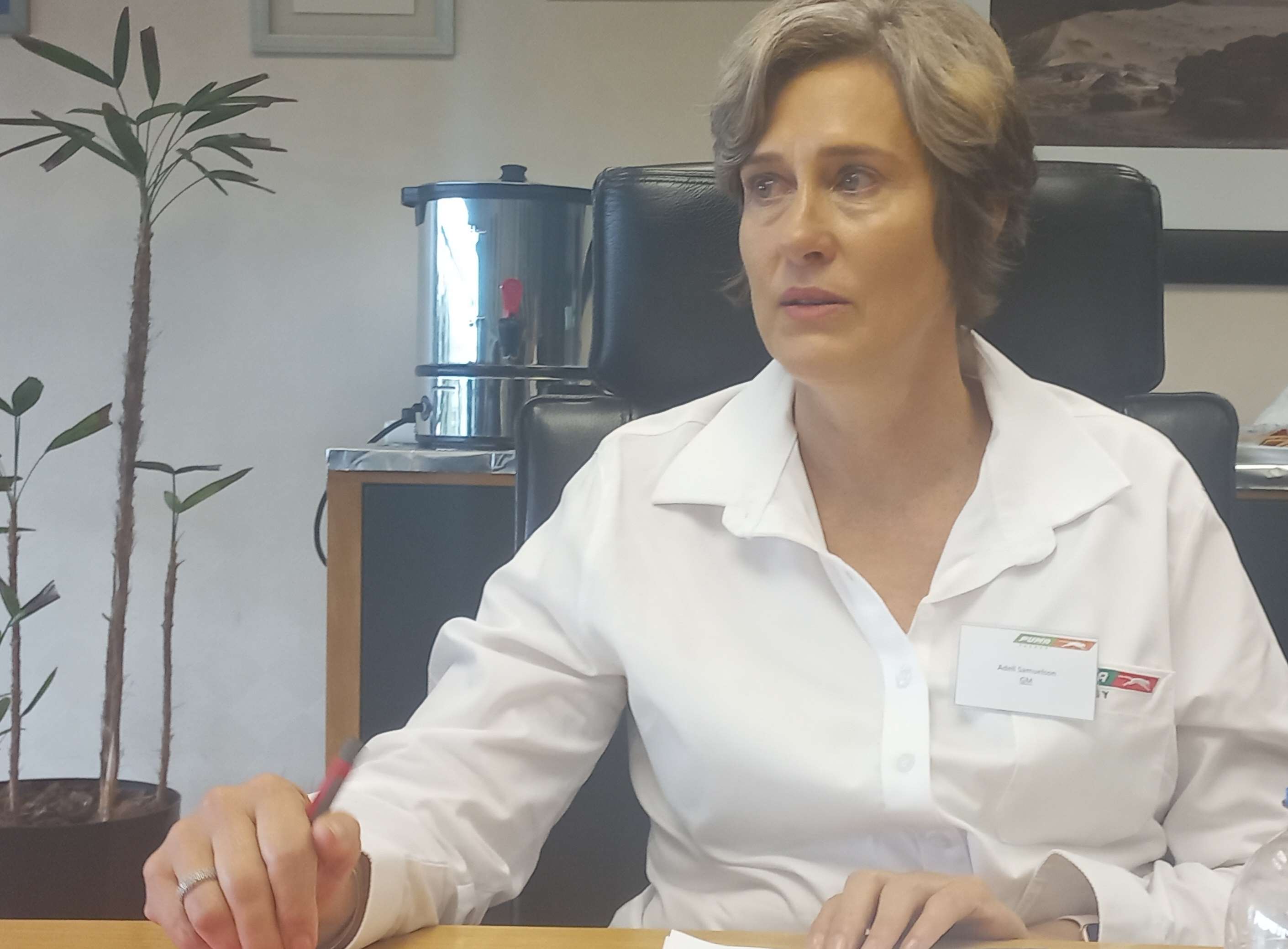
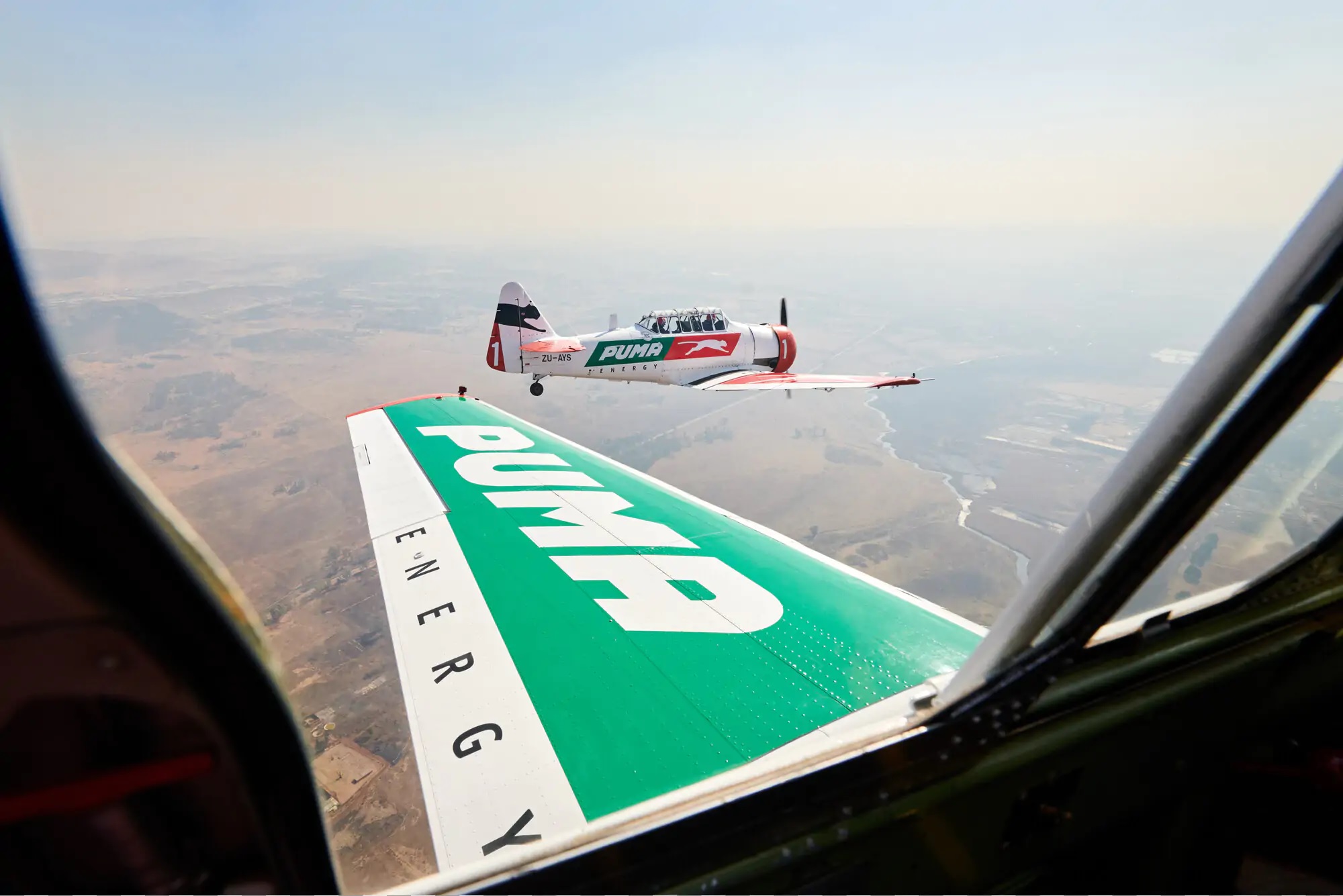
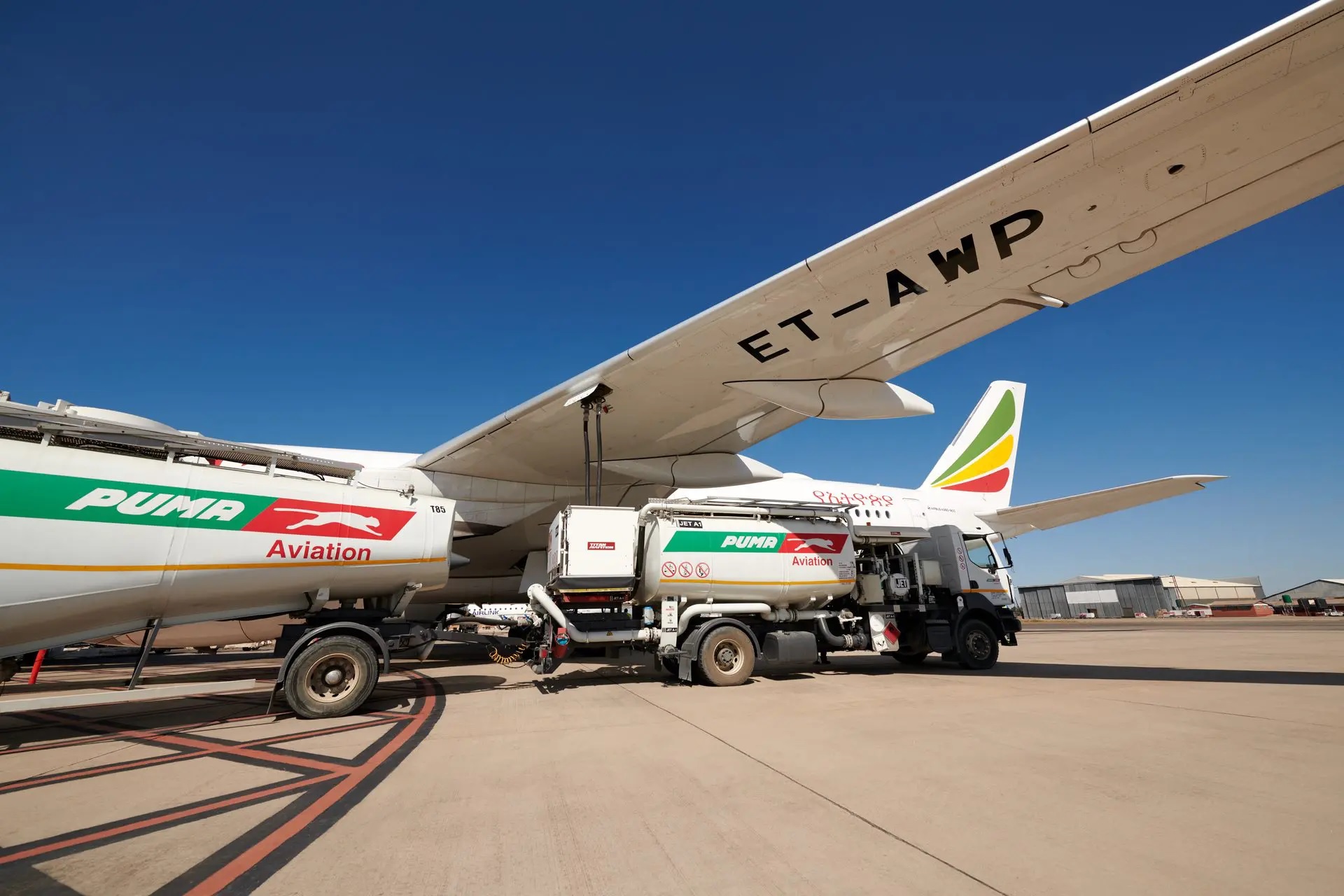
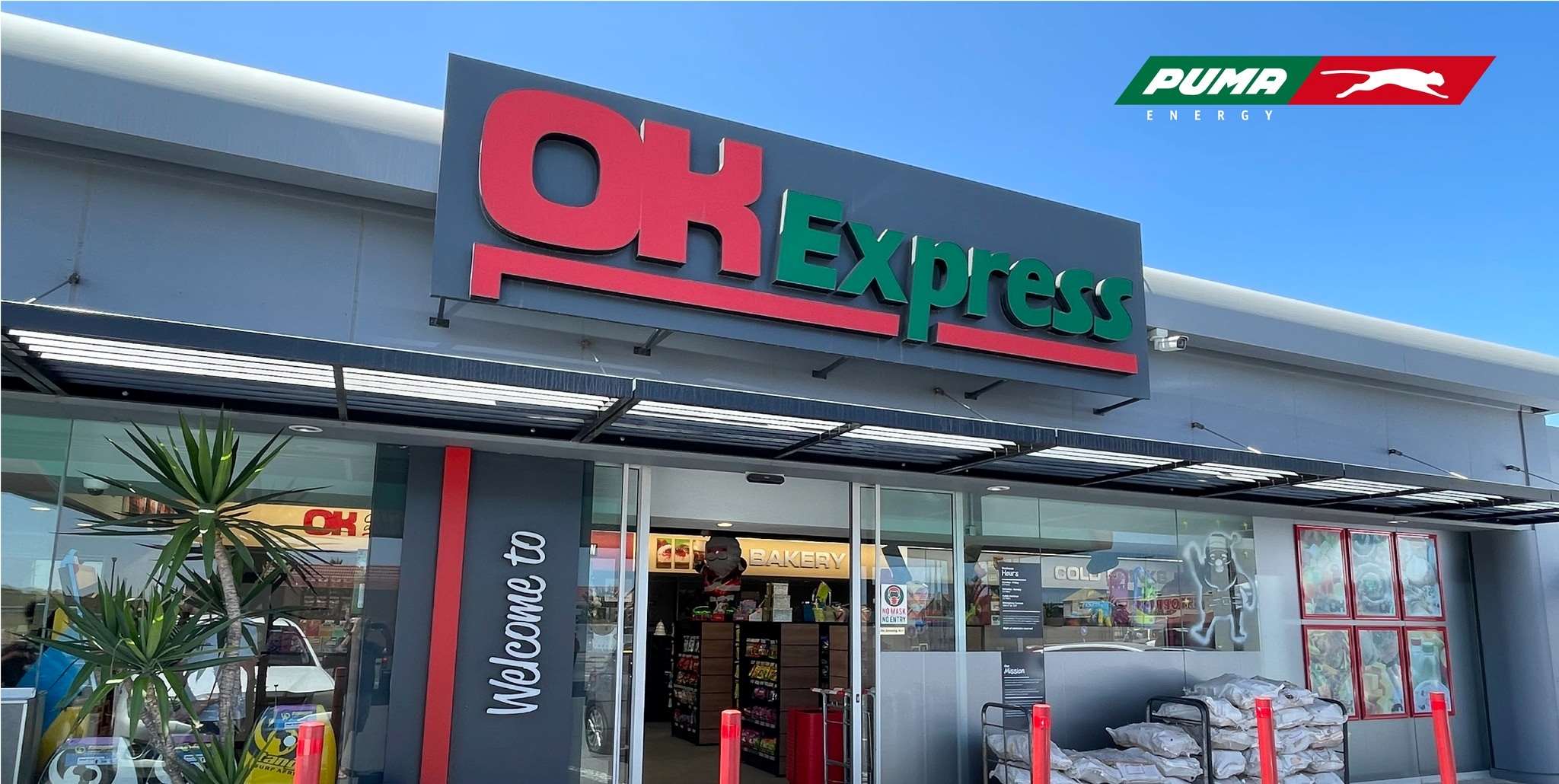
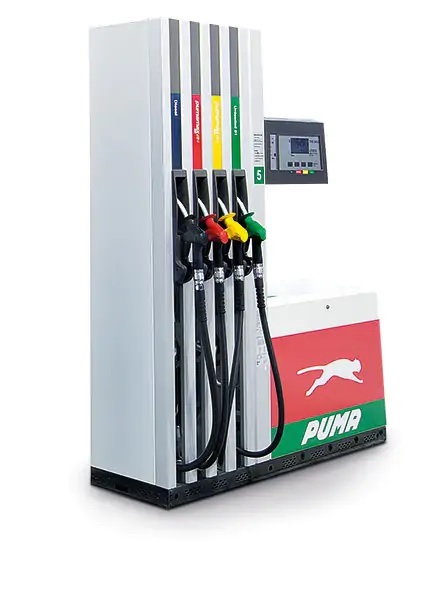
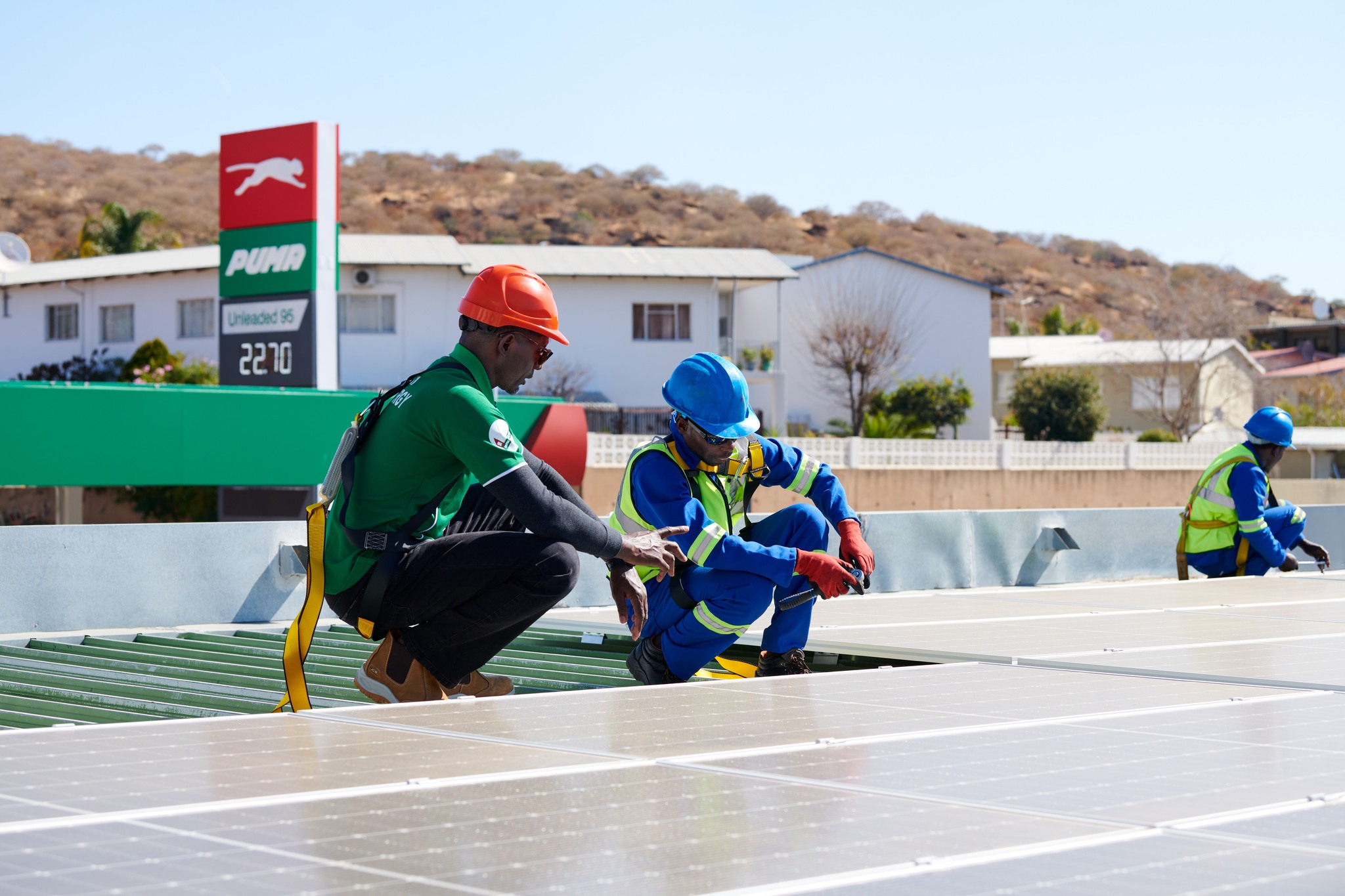
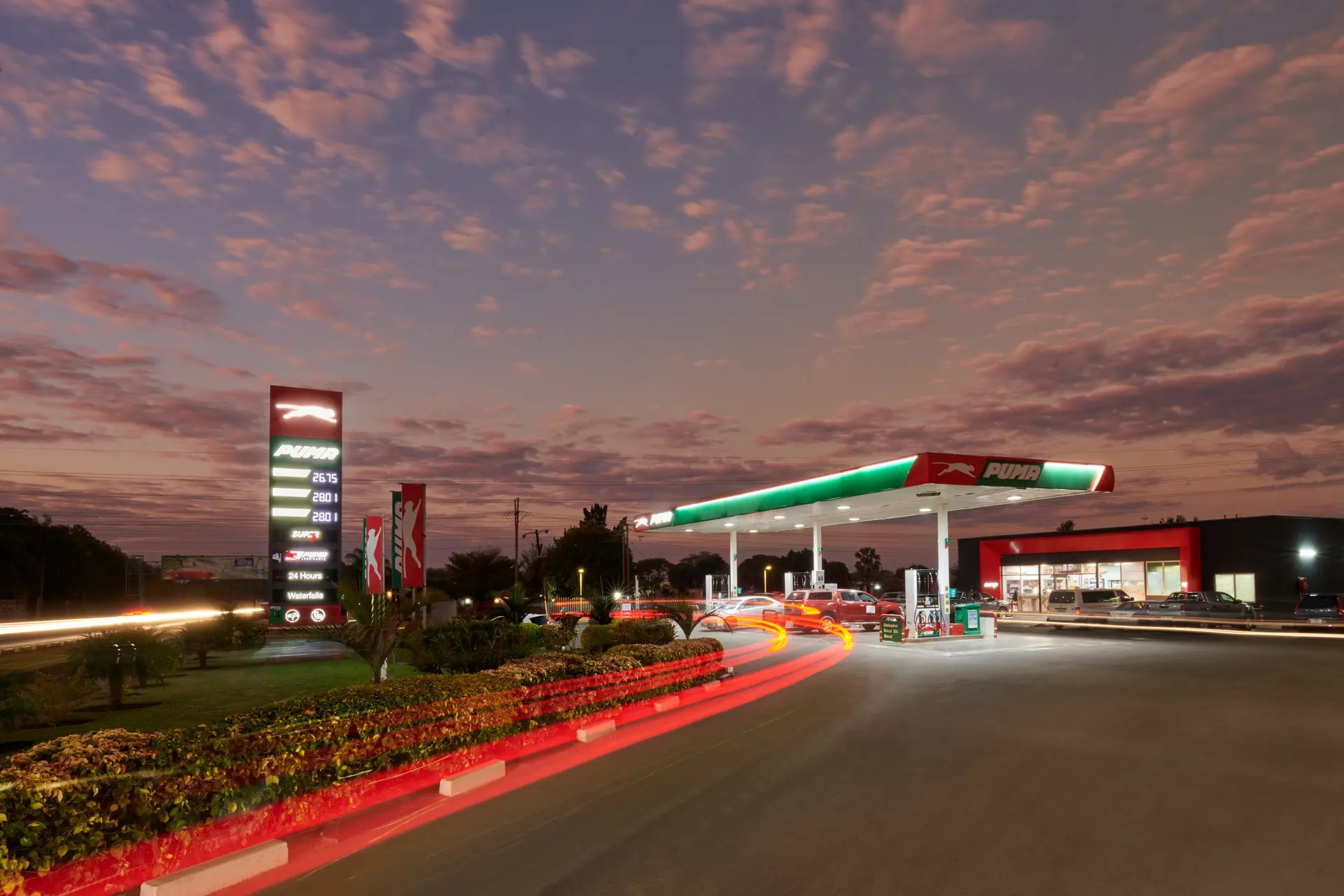
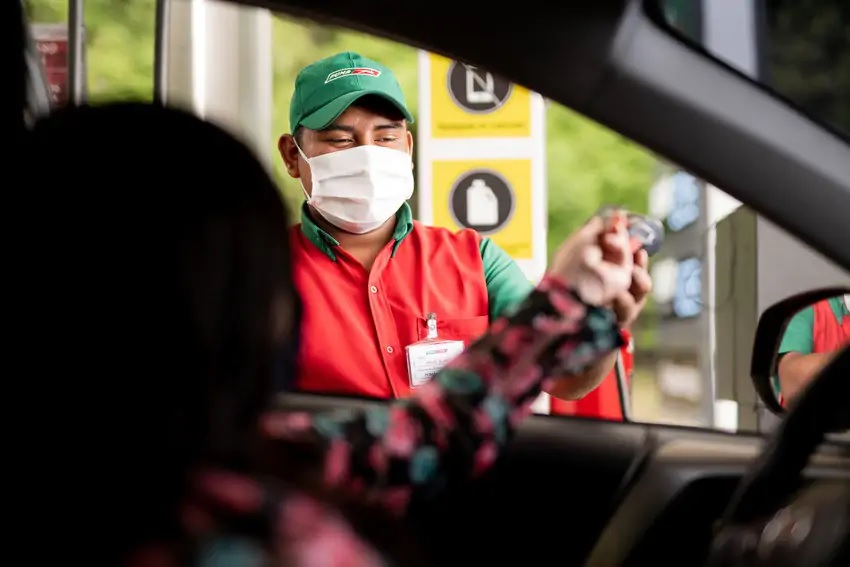
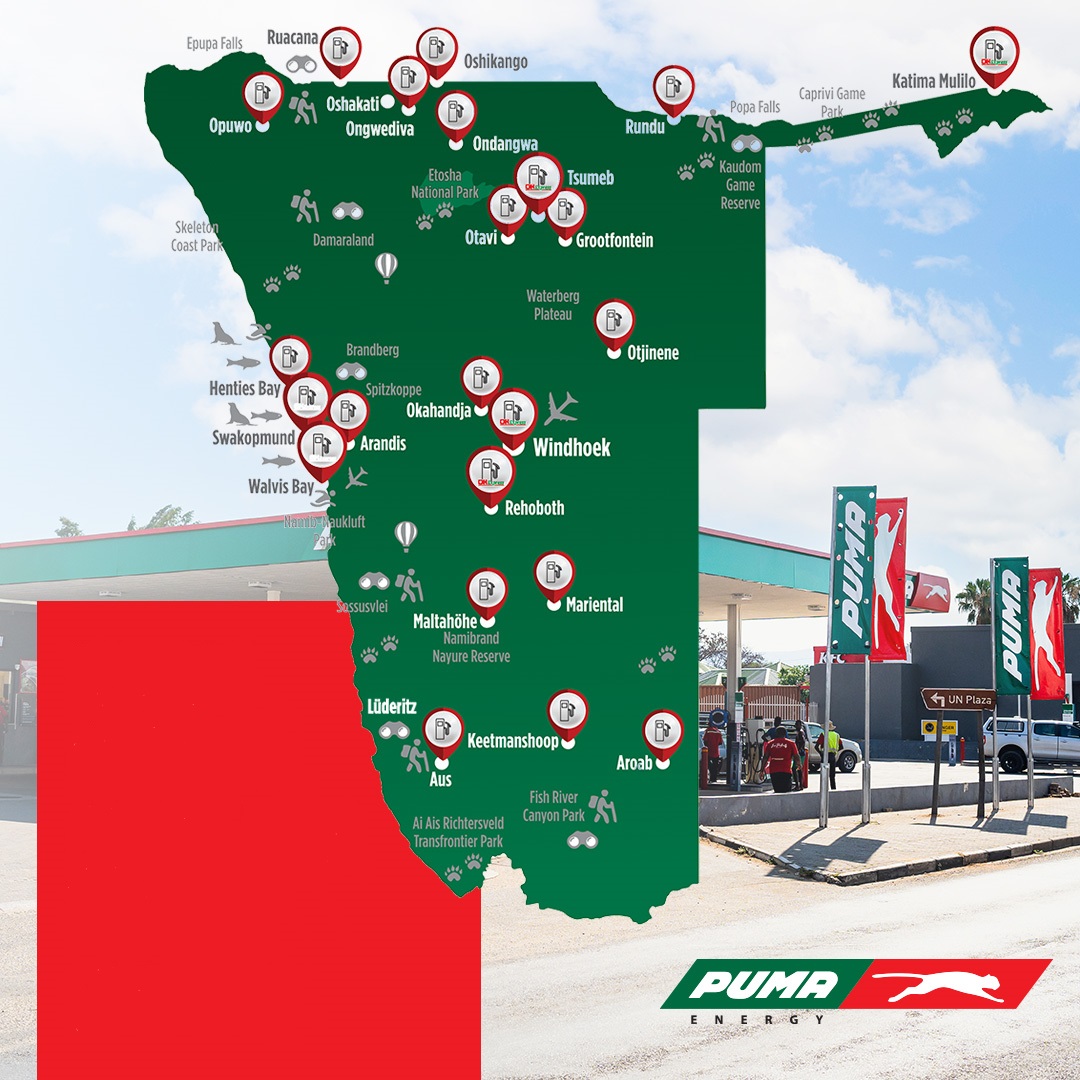
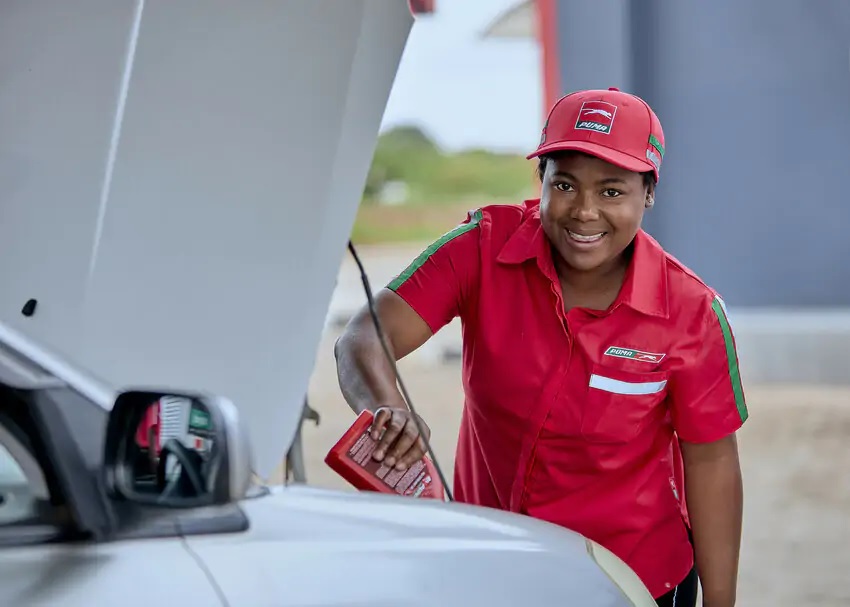

Kommentaar
Republikein
Geen kommentaar is op hierdie artikel gelaat nie